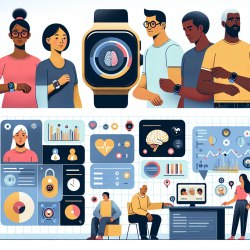Introduction
The integration of wearable sensor technology in healthcare has opened new avenues for monitoring patients with neurodegenerative diseases (NDD) and cerebrovascular diseases (CVD). A recent study, "Feasibility of a continuous, multi-sensor remote health monitoring approach in persons living with neurodegenerative disease," explores the potential of continuous, multi-sensor remote health monitoring. This approach not only aids in disease tracking but also enhances patient self-management and clinical care.
Study Insights
The study involved 39 participants with various conditions, including Alzheimer's, Parkinson's, and amyotrophic lateral sclerosis. Participants wore five devices continuously over seven days, demonstrating high adherence and acceptance. The study found that:
- Adherence to device-wearing was high, with a median of 98.2% of the study period.
- Non-wear rates were low, with significant differences based on sensor location.
- Feedback from participants and study partners indicated general acceptance of the multi-sensor wear.
Implications for Practitioners
For practitioners, the study underscores the importance of adopting multi-sensor approaches in patient care. Here are a few ways to implement these findings:
- Enhance Patient Monitoring: Use wearable sensors to continuously monitor patients' health metrics, providing real-time data that can inform treatment adjustments.
- Improve Patient Engagement: Educate patients and caregivers about the benefits of wearable technology, enhancing their engagement and adherence.
- Tailor Interventions: Utilize data from wearable sensors to tailor interventions to individual patient needs, improving outcomes.
Encouraging Further Research
The study highlights the need for further research into the long-term feasibility and effectiveness of multi-sensor monitoring. Practitioners are encouraged to explore:
- The impact of extended wear periods on patient adherence and data accuracy.
- The integration of wearable technology with telemedicine platforms for comprehensive care.
- Patient and caregiver feedback to continuously improve device design and usability.
Conclusion
The study provides compelling evidence for the feasibility and benefits of continuous, multi-sensor remote health monitoring in managing neurodegenerative diseases. By implementing these technologies, practitioners can enhance patient care, improve disease management, and contribute to the growing body of research in this field.
To read the original research paper, please follow this link: Feasibility of a continuous, multi-sensor remote health monitoring approach in persons living with neurodegenerative disease.










